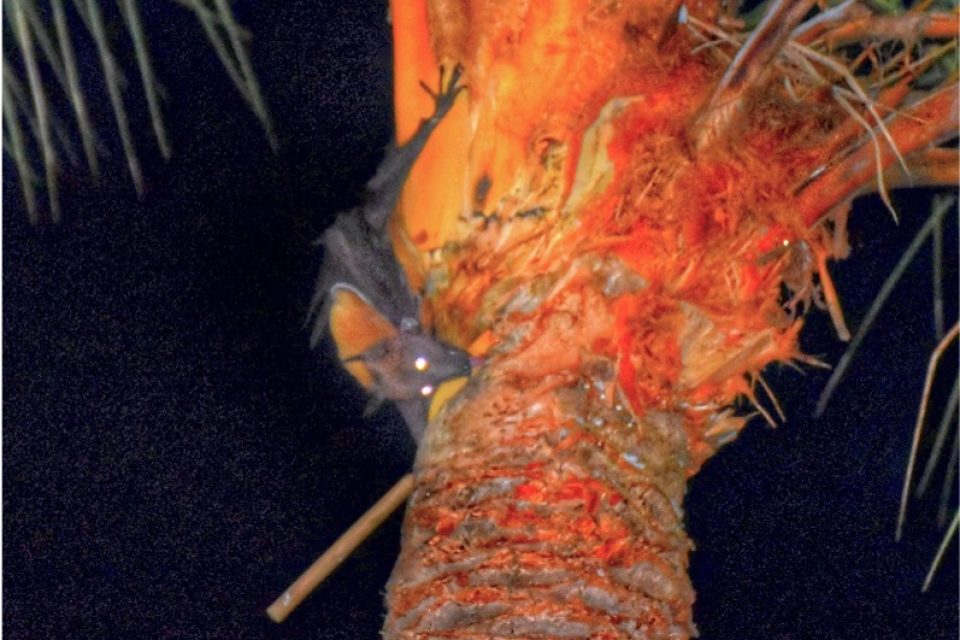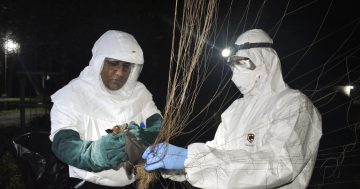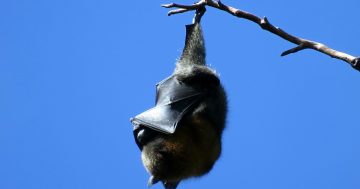
Dr Ariful Islam was invited to present on bat-borne diseases at a conference at the University of Chicago. Photo: Supplied.
A Charles Sturt University epidemiologist recently spoke at a US conference about how destroying bats’ habitats was increasing the odds of a bat-borne disease outbreak.
Gulbali Institute epidemiologist Dr Ariful Islam, an expert on bat-borne diseases, was invited to present his findings at the Fourth International Symposium on the Infectious Diseases of Bats (BatID) 2025 at the University of Chicago last week (9 to 11 July).
Dr Islam mainly spoke about his expertise on the Nipah and Hendra viruses, and the factors that may drive or facilitate bat-borne disease outbreaks.
Destroying the bats’ natural habitats also destroys their source of food, making them depend on human cultivated fruits. Sharing the same source of food increases the risk of pathogen and contamination spillover.
“For example, contaminated raw date palm sap is the key transmission method of Nipah virus in Bangladesh,” Dr Islam said.
Raw date sap (khejur ras in Bengali) is a sweet sap extracted from date palm trees in South Asia during winter. It’s a popular drink often consumed fresh, and has been identified as the key transmission method for Nipah virus in Bangladesh.
The bats, which naturally host the viruses, contaminate the sap by feeding on the raw date’s sap at night during winter in Bangladesh (December to March), which are typically collected overnight in open clay pots.


BatID is an international conference that gathers researchers from different fields including virology, immunology, biochemistry, ecology, physiology and genetics to investigate the role of bats as unique pathogen hosts.
The conference has three objectives: to share and discuss current research findings, foster collaborations and expand the research, and identify which area research should focus on next.
Bats are natural reservoir hosts for several emerging viruses with “pandemic potential” including the coronavirus and henipavirus (a group of viruses containing the deadly Hendra and Nipah viruses).
“We need to better understand the bat’s immunology,” he said.
“Their immunology and immune system is very special; they carry dangerous pathogen like Nipah and Hendra virus, but they are not getting sick.
“If we know their immunology and their immune system, it can help us to know how to protect human lives.”
According to the Wagga-based expert, bats are natural reservoir hosts to other viruses such as coronavirus or Ebola, not just henipavirus.
Reservoir hosts are organisms (often animals) that carry pathogens such as viruses, bacteria or parasites.
They serve as a source of infection for other organisms without necessarily suffering from the illness, which means they’re a natural “storage” for pathogens.
Dr Islam previously called for an early warning detection system to monitor the health of Australia’s bat population, and warned this was a conservation issue.
“The key drivers are specifically environmental,” he said.
Dr Islam believes finding a way to protect the bats’ natural habitat is just as important as developing a vaccine or cure.
“You know this means aside from vaccination option or therapeutic option, we need to find the healthy ecosystem maintenance that will be helpful for the health of bats,” he said.
“So that means reduce the spillover. We need to protect their habitat.
“Not habitat disturbance or continuing bat habitat destruction.”









